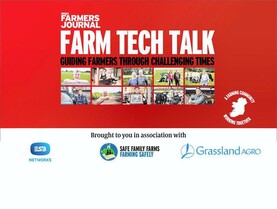The Irish beef market is clearly not working.
At this stage, there is no point in allocating blame to the Red Tractor scheme in the UK, the Irish meat plants or Bord Bia – instead we should urgently look at what can be done to rescue producer livelihoods.
We actually have direct experience of a system that has worked over the years.
Whether you want to call it a variable premium system or a deficiency payment regime is irrelevant – the basics are the same.
The market should recognise this difference in costs but over the last number of years, it hasn’t
For those who don’t remember the old British system, the operation was straightforward and effective. Broadly, the system recognised that beef in spring cost more to produce than beef off grass in summer and autumn.
The market should recognise this difference in costs but over the last number of years, it hasn’t, and this year the price has gone into reverse. When there is such a clear market failure, Government should at least consider stepping in.
While in the case of beef we historically piggy-backed on the British guarantee, we ran one for the sheep sector ourselves.
In the case of beef, there is no reason why in the autumn, there should not be an announcement of a system of guaranteed prices for specific grades of cattle with a steady uplift in price to reflect the increase in costs as the winter and spring move on.
A total of about 200,000 cattle would probably have to have their price guaranteed. At a cost of €100/head, the cost would be €20m
With modern grading systems the mechanics of operating such a system would be straightforward.
Of course, there would have to be clearance from Brussels to operate such a scheme and where would the money come from?
It would seem tailor-made for Pillar II funding. The sums would not be enormous.
A total of about 200,000 cattle would probably have to have their price guaranteed. At a cost of €100/head, the cost would be €20m, only one-fifth of the money allocated to the BEAM scheme.
The cost might be more or less than this depending on conditions but with Irish beef losing its place on supermarket shelves across Britain and mainland Europe, and the efficient bull beef systems no longer operating, it is clear we need some fresh thinking.






 This is a subscriber-only article
This is a subscriber-only article










SHARING OPTIONS: